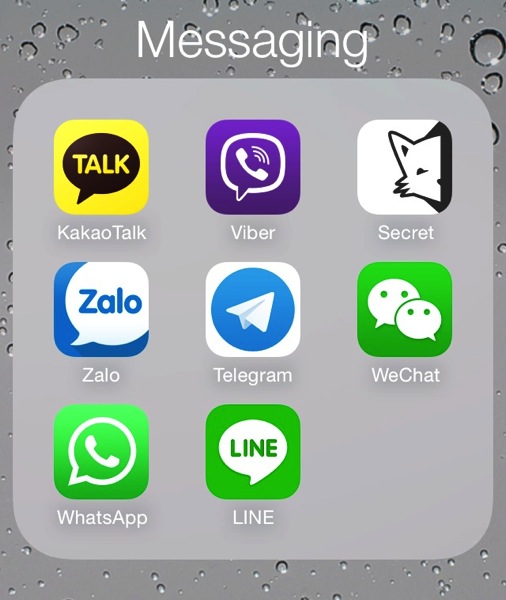NEW DELHI— Facebook Inc. is hiring a high-profile technology executive with expertise in Silicon Valley and India to help develop strategies for its Messenger app, an increasingly important platform for the social-media company.
Anand Chandrasekaran, a former senior executive at Yahoo Inc., will assume a global leadership role working on strategies and partnerships for Facebook’s billion-user-strong texting service, said people familiar with the situation.
It wasn’t immediately clear whether Mr. Chandrasekaran would be based in the U.S. or India.
An announcement could be made as soon as Tuesday, one of the people said.
A Facebook spokeswoman confirmed the hire, but didn’t add anything further.
After working at Yahoo, Mr. Chandrasekaran served as chief product officer at Bharti Airtel Ltd., India’s largest cellular company, where he launched Airtel’s mobile application and a popular music-streaming app.
Last year, he joined New Delhi-based Snapdeal, one of India’s major e-commerce startups, as chief product officer. He departed the company in recent months.
With global users increasingly flocking to messaging platforms such as Facebook’s own WhatsApp and Chinese internet company Tencent Holdings Ltd.’s WeChat, the Menlo Park, Calif., company is eager to transform Messenger into a hub for activities such as e-commerce.
In April, Facebook emphasized its focus on the app at its annual F8 conference in San Francisco, showing developers how to create so-called chatbots for the service. These automated services can interact with consumers in real time to answer questions about the prices of goods, for example.
Tag: messaging_apps
The story begins:
Communications app Telegram Messenger is in the spotlight after the deadly terrorist attacks in Jakarta last week, with experts in Indonesia and Malaysia saying Islamic State radicals in Syria have used the platform to recruit members from Southeast Asia.
The revelations underscore both the apparent popularity of the Berlin-based app among members of the terror organization and the challenges it poses to authorities in tracking its private, encrypted chats.
Malaysian police on Saturday said its counterterrorism unit last week arrested four suspects, three of whom were recruited to join Islamic State in Syria by a Malaysian national via Telegram and Facebook Inc.’s social-networking platform.
Telegram, which in November said it blocked 78 of its public channels across 12 languages related to Islamic State, was one of the first apps to explicitly cater to privacy enthusiasts after reports in 2013 alleging widespread surveillance by U.S. intelligence.
Islamic State has used Telegram, a free platform that can be accessed via mobile devices and desktop computers, to disseminate public statements, such as its claim of responsibility for the November attacks in Paris.
Users of the popular messaging app WhatsApp can now conduct their chats via a Web browser — with a few restrictions.
The Facebook-owned service with some 700 million monthly active users said in a blog post Wednesday that people can now link their mobile phones with a WhatsApp Web client, allowing them to write and read messages via their computers.
There are, however, a few limitations to the setup. First, those with iPhones are out of luck due to “Apple platform limitations,” WhatsApp says. The service works with Android, BlackBerry, Nokia S60 and Windows devices, but users need the latest version of WhatsApp.
To start, WhatsApp users can visit Web.WhatsApp.com via Google’s Chrome browser on their computers, where a QR code will appear.
Click through for instructions on how to set it up.
And, yes, an you’ll see an image of a WhatsApp conversation I had via a Web browser…with myself.
As I said on Facebook earlier: Anything in the name of journalism.
That’s the subject of a brief story I wrote yesterday:
A new mobile messaging app that enables users to communicate in the absence of cellular or Internet connections is seeing a surge in downloads among Hong Kong’s pro-democracy protesters.
The free FireChat app, which launched in March, was downloaded 100,000 times in Hong Kong between Sunday morning and Monday morning, said Micha Benoliel, co-founder and chief executive of San Francisco-based Open Garden, which developed the app.
It is unclear how many protesters are using it to communicate regularly during the protests, which mark Hong Kong’s most serious confrontation with Beijing in more than a decade. Students and other protesters have flooded the city’s streets in the weeks since Beijing’s decision on Aug. 31 to impose limits on how Hong Kong elects its leader. The protests escalated Sunday, with police using pepper spray and tear gas to disperse demonstrators.
Click through for more.
My Story on Messaging Apps in Southeast Asia

The reason I have this special folder on my iPhone: I’ve been researching a story on messaging app makers battling for users here in Southeast Asia.
It ran in the WSJ Asia in print and online Friday.
The lede:
When Listri Samudra, an equity sales representative in the Indonesian city of Bandung, opens her smartphone to connect with her clients, she has three messaging apps to choose from.
She usually prefers BlackBerry Messenger, which remains highly popular in Indonesia, but also often uses WhatsApp—the company Facebook Inc. recently agreed to buy for $19 billion—or Line, a Japanese app that is rapidly gaining ground in the region.
The crowd of free messaging apps on Ms. Samudra’s phone illustrates why Southeast Asia is shaping up as an important battleground for messaging app makers. The region, in which no clear messaging leader has emerged, is critical, in part, because many of its roughly 600 million people have yet to upgrade from basic cellphones to smartphones.
Click through for a map of the region with estimates of which apps are most popular in countries like Indonesia, the Philippines, Vietnam, Thailand, and Malaysia.